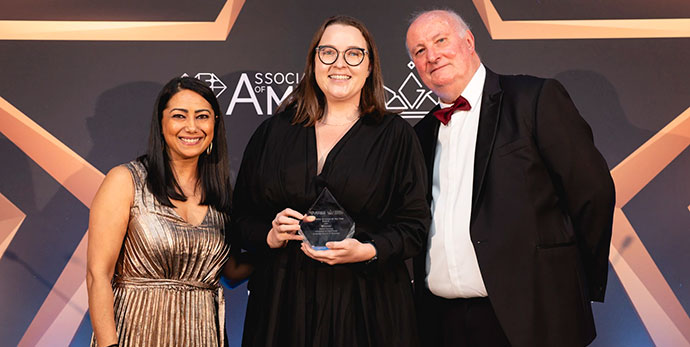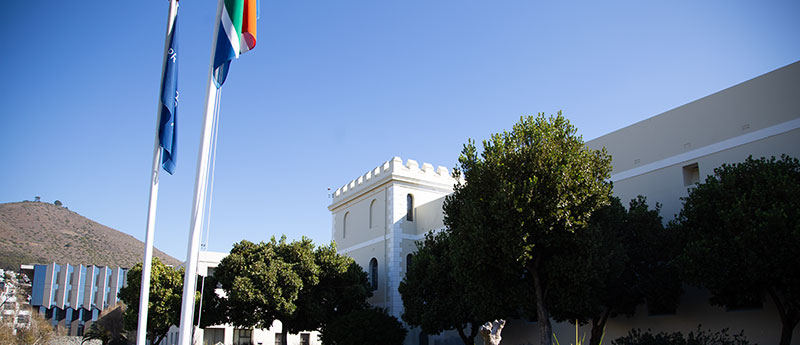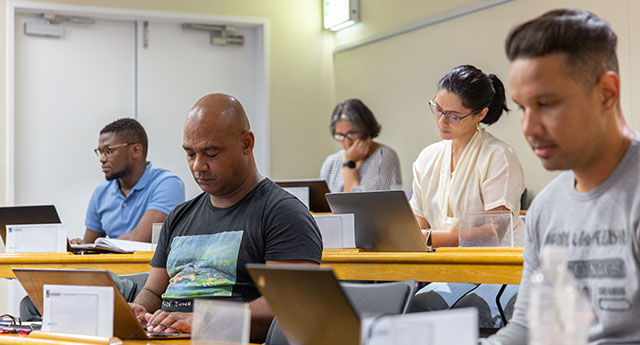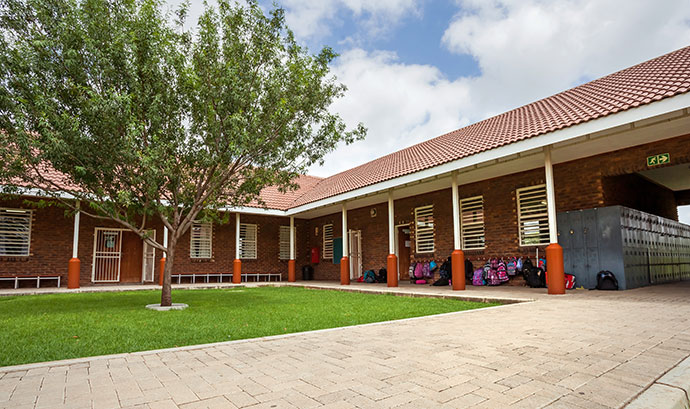“I grew up in a business-oriented family,” says CEMS MIM student Neelo Gopolang. “Both of my parents were entrepreneurs.” And while her undergraduate degree in international finance and banking would seem like an obvious path to Africa’s premier postgraduate business school, her vehicle to arrive there was far less common: she won a study bursary in a singing competition.
Determined to use her windfall wisely, Gopolang did some research and found the CEMS Master in International Management (MIM) programnme at the UCT Graduate School of Business.
“I wanted to look for something that can incorporate both my undergrad degree as well as my upbringing, where I was exposed to a lot of entrepreneurial thinking and challenges, but also expose me to different ideas and other prospects,” says Gopolang.
“I was looking for an international business course. Something that will be a bit more broad, and get me to learn about as many aspects of business as possible, with an international focus. So I ended up searching on the internet and I came across the CEMS MIM programme at the GSB. And the course was perfect – it had everything that I was looking for. And when I saw it was UCT, I knew that it was one of the best schools in Africa. So I wanted to go there.”
Unpacking the CEMS MIM programme
The UCT GSB is the only school in Sub-Saharan Africa to have been selected by the Global Alliance in Management Education to offer the CEMS MIM programme, which equips recent graduates with the skills and experience to embark on an international career in business practice.
Students of the CEMS MIM programme spend their first semester at the GSB, learning the fundamentals of business development in emerging markets, global business strategy, international business communication, and enhanced leadership skills.
The second semester of the programme is spent applying the theory as an international exchange student at one of the GSB’s 33 CEMS partner schools – comprising the likes of the London School of Economics, the Indian Institute of Management in Calcutta, HEC Paris, and Cornell.
The third semester requires students to complete an internship at a blue-chip multinational company – leveraging the CEMS global Corporate Partner network of over 70 companies and 8 non-profit organisations worldwide – and working on real business strategies with a dedicated client liaison.
Being an international degree, almost every student who joins the CEMS MIM programme is struck by the number of students from all over the world in the classroom. This is very much part of the global exposure that forms part of the student experience. But Gopolang found herself grappling with a further element. Like most people who pursued their tertiary education during the Covid pandemic, Gopolang found herself needing to adjust to in-person lectures.
“It was great being able to meet with people from different parts of the world. They really helped me to broaden my perspectives and even break stereotypes,” she says. “But I'd never got to experience university lectures because of Covid. I had my undergrad in 2019, when everything shut down. So the classrooms were new to me – and I knew I had to take it up a notch.”
The rewards of international exchange
Working on her thesis under the guidance of a supervisor was another big step up. Her research focused on the impact of entrepreneurial ecosystems on innovation and growth in South Korea, reflecting her dual interests in entrepreneurship and international development. It is also what led her to choose Korea University Business School for her international exchange.
“I really liked [the Korean] proactive mindset when to comes to business,” says Gopolang. “They're very energetic, and they really do strive towards making sure that their economy is growing. So I knew that there's a lot that I can learn from them.”
In South Korea, Gopolang immersed herself in a different business environment, learned the Korean language, and got first-hand experience in the local market dynamics. Working on a marketing strategy project with EF Korea, Gopolang honed her skills in articulating business insights and collaborating with a diverse team.
Currently exploring internship opportunities, Gopolang aims to delve into business development and management. Her role as the student board representative for UCT within the CEMS network and her leadership in marketing and communications have provided her with additional skills and perspectives, steering her career aspirations towards her dream career.
Global perspectives, local impact
“I think what's so great about the [CEMS MIM programme] is that it allows you to explore and discover what it is that interests you,” says Gopolang. “At the GSB, there are certain electives that you can choose – entrepreneurship, technology, economics… And when you go to your exchange school, you can also shape the way that you want to go about it.
“Personally, I thought that marketing is something that I could really get into. But then I realized looking more into entrepreneurship, or business development. So it’s a great programme to broaden your career horizons.”
When asked if these international insights have shaped her vision of South Africa’s socio-economic prospects, Gopolang enthuses: “I would say we need leaders who are willing to go against the grain. We just need people who are willing to fight for the betterment of their country and their people. I think once that happens, then we will be able to propel ourselves, not only as South Africans, but as a continent, and then our youth can have a future that they can look forward to.”




































































































































